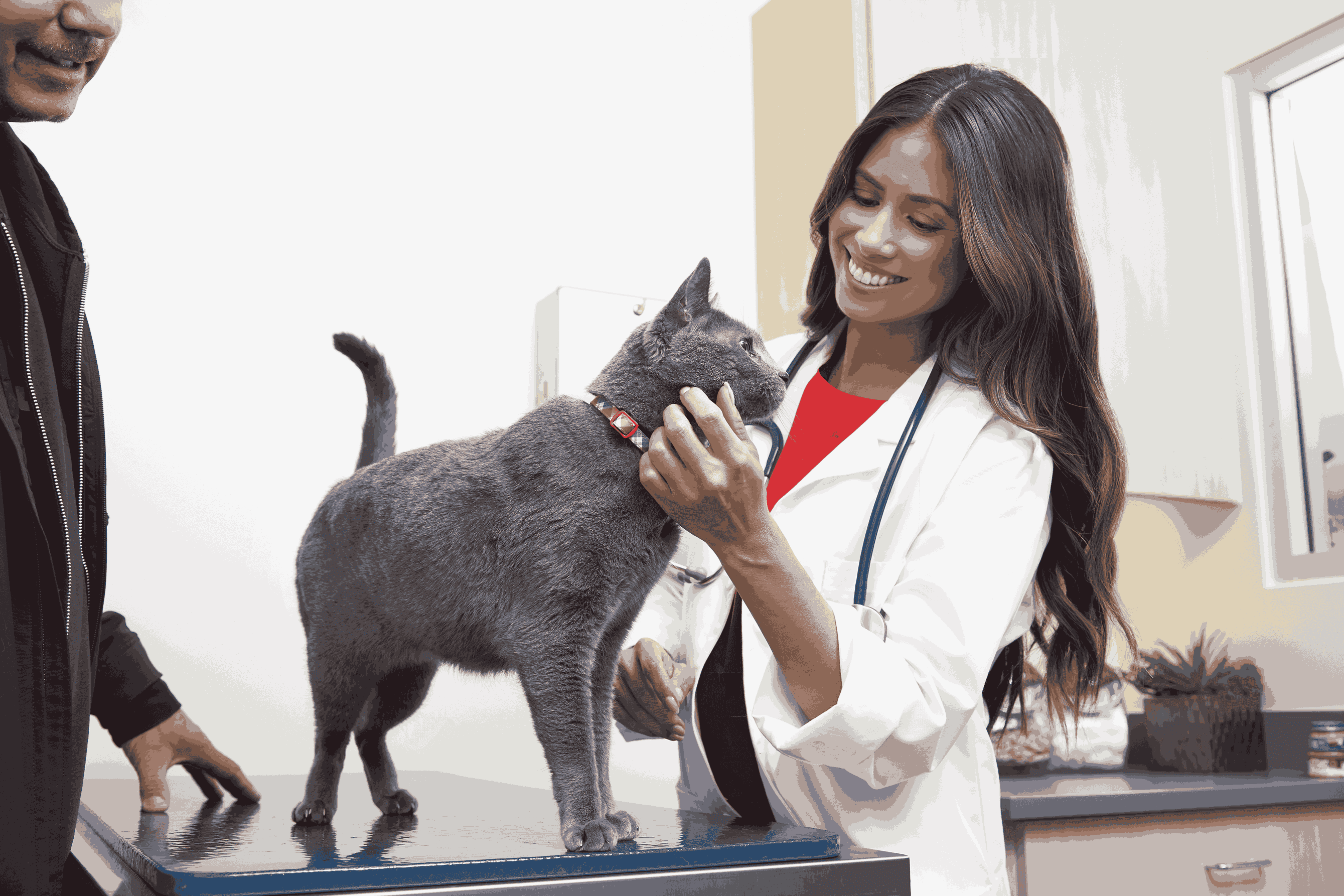Pyometra in Cats
Pyometra, Pyo

SUMMARY OF CONTENT
SEVERITY:
-
 A rare condition, “Stump Pyometra”, can happen in spayed animals if an ovarian remnant is left behind.
A rare condition, “Stump Pyometra”, can happen in spayed animals if an ovarian remnant is left behind. -
 Resolves within days to weeks with proper medical treatment and/or surgery but can be a fatal condition
Resolves within days to weeks with proper medical treatment and/or surgery but can be a fatal condition -
 Treatable by a veterinarian
Treatable by a veterinarian -
 Spaying female cats at an early age will prevent pyometra later in life
Spaying female cats at an early age will prevent pyometra later in life -
 Transmission is not possible between animals, or from animals to people
Transmission is not possible between animals, or from animals to people -
 Diagnosis requires physical exam, lab tests, x-rays, and/or ultrasound.
Diagnosis requires physical exam, lab tests, x-rays, and/or ultrasound.
VERY COMMON IN
Symptoms & Signs
The most common sign of pyometra is a white, yellow or blood-tinged discharge from the vulva. The cat will lick at her vaginal area while the cervix is still open and the uterus is discharging a white fluid. The abdomen may appear distended and the cat may have a decreased appetite, vomiting or lethargy. Some cats will have a fever and some may become dehydrated. Many cats do not show any obvious signs of apparent illness beyond discharge, which they may easily hide if they are routinely grooming themselves, until late- stages of the disease. If blood work is done, it will show an elevated white blood cell count and possibly mild anemia.
Diagnosis
A physical exam of the cat followed by blood work and evaluation of any vaginal discharge may diagnose pyometra. An abdominal x-ray or ultrasound will be performed to confirm the diagnosis.
Causation
In the past, it was thought pyometra was simply a uterine infection. Today, we know that it is a hormonal abnormality, and a secondary bacterial infection may or may not be present. Pyometra follows a heat cycle in which fertilization did not occur. Typically, within one to two months after the cycle, the female starts showing signs of the disease. The two main hormones produced by the ovaries are estrogen and progesterone. An excessive quantity of progesterone, changes in the uterine wall leading to cysts forming, and introduction of bacteria into the uterus causes pyometra. Large quantities of fluids are produced and released into the interior of the uterus as the cysts grow. Bacteria commonly colonize the uterus by entering through the cervix. This produces an even greater response by the body, as it showers additional fluid and white blood cells into the affected organ. This fluid, along with a thickening of the walls of the uterus, brings about a dramatic increase in the overall size of this organ. As the disease progresses, fluid moves from the uterus to the vagina and then spills out onto the vulva causing the animal to lick this area in an attempt to keep herself clean. In some cases of pyometra, the cervix closes. This effectively traps all of the fluid within the uterus. Still, the body continues to transfer more fluid and white blood cells into the organ, causing even further dilation and growth. The uterus can rupture, spilling its contents into the abdominal cavity. This would be a serious and potentially fatal medical condition. The body will attempt to eliminate the problem by carrying the wastes and excess fluid through the bloodstream to the kidneys. The normal toxins that should be excreted from the body build up and overwhelm the kidneys, and the animal goes into uremic poisoning. If left untreated, she will die from kidney failure.
Treatments
SUPPORTIVE CARE
MEDICATIONS
DEVICES
SURGERY
SPECIALISTS
Cost Of Treatment
While veterinary costs vary for a number of reasons, surgery to treat pyometra may cost between $1500 and $3000.
Recovery
Recovery from pyometra usually occurs within days to weeks depending on the type of treatment and response. In cats that are treated with and respond to medical therapy, the cat typically recovers within a week after medications are started. There is, however, a risk of recurrence after each heat cycle. With surgical correction, expected recovery time is generally expected within two weeks with no risk of recurrence as long as no ovarian remnant remains.
Monitoring
When medical therapy is used to treat pyometra, the cat needs to be monitored for recurrence by watching for common signs of pyometra, including decreased appetite, lethargy, vaginal discharge/licking, vomiting and fever. If surgery is performed, a follow-up examination will be scheduled 10-14 days after surgery for suture removal. If surgery is performed, the cat should be kept to a confined area with reduced activity and fit with a surgical cone or surgical recovery suit to help prevent manipulation of the sutures. Thoroughly inspect the cone or recovery suit often to ensure your pet does not have access to the surgical site.
Prevention
The best prevention of pyometra is to have all female cats spayed at or before six months of age. Pyometra is a fairly common and serious problem, but it is just one of many compelling reasons to have your female pet spayed at an early age.
Disclaimer
The information contained on this page is for educational purposes only. Treatment should only be provided under the advice of a veterinarian who has examined your pet under the laws applicable to your state of residence.
Questions about Pyometra

Two Easy Ways to Start Earning Rewards!
Become a member today!Members-only pricing and offers, personalized care notifications, Vital Care points back on every purchase and more!Become a credit card member today!
Earn 2X Pals Rewards points at Petco
when you use Petco Pay!APPLY NOWLearn More About Petco Pay Benefits






